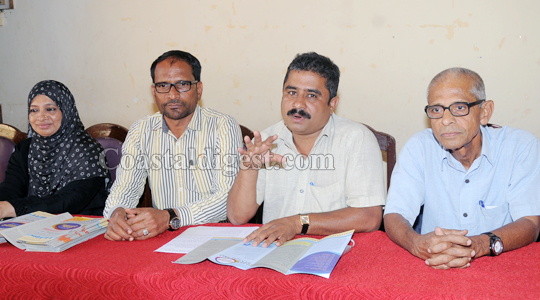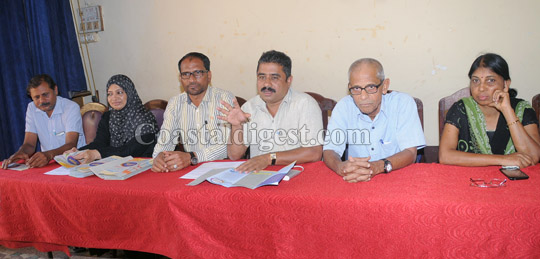Mangaluru, Jan 27: After cancellation of the events of Dr Zakir Naik and Praveen Togadia, the coastal city of Mangaluru is all set to host a massive communal harmony and co-existence conference on January 30. Writer and thinker Baraguru Ramachandrappa will inaugurate the “Sahabalve Sagara Samavesha” at the Town Hall.
Organised by the Karnataka Komu Souharda Vedike to mark the anniversary of the day of assassination of Mahatma Gandhi the day-long event expected attract around 1,500 delegates from different parts of Karnataka.
KL Ashok, the general secretary of KKSV, told media persons here that the delegates would be coming in a procession from Koodalasangama, Shishunala, Bababudangiri, Srirangapatna, Ankola, Chikkaballapura and Yadagir to Mangaluru.
Mr. Ashok said that while the processions from seven places would start on 28th, the one from Bababudangiri would start on January 29. All the processions would be arriving at the Town Hall on the evening of January 29. Entrance to the venue of the event would be named after research student Rohith Vemula from the University of Hyderabad, who committed suicide recently, he said.
The convention would commence at 9 a.m. with the presentation of sufi songs, vachanas, souharda geethe, local Paadana songs on the stage named after freedom fighter Kudmal Ranga Rao. After the inaugural function, there would be a session on “Secular society – religious coexistence” at 11.30 a.m. in which Panditaradya Shivacharya Swami from Sanehalli Mutt, Dakshina Kannada Qazi Twaka Ahmed Musliyar and Mangaluru Bishop Aloysius Paul D’Souza would participate, Mr. Ashok said.
He said, there would be a session on the role of political parties in building a cordial society. Senior politician A.K. Subbaiah, Minister for Small Industries Satish Jarkiholi, Health Minister U.T. Khader and Media Advisor to Chief Minister Dinesh Amin Mattu would be among those participating in the discussion. Well known Psephologist Yogendra Yadav and Human Rights activist Teesta Sethalvad would participate in the valedictory function to be held at 5.20 p.m.







Comments
Thanks to All who are working for united, peaceful India,
Don't invite Bhatta and Bajrangy members...
WELL DONE ... Unity will not go unrewarded.
Add new comment